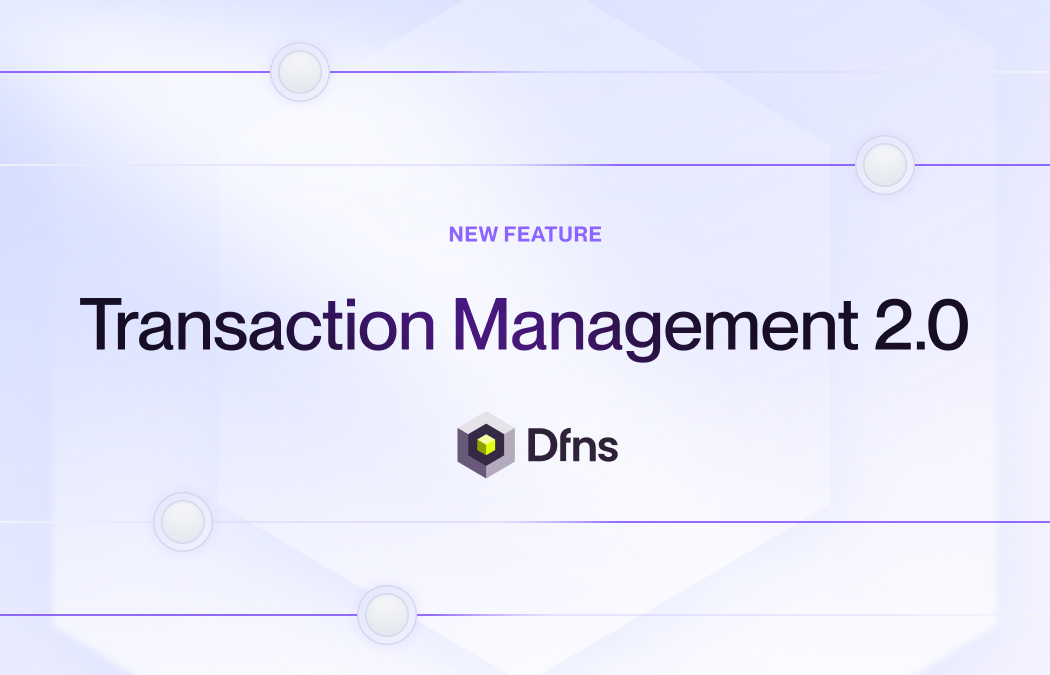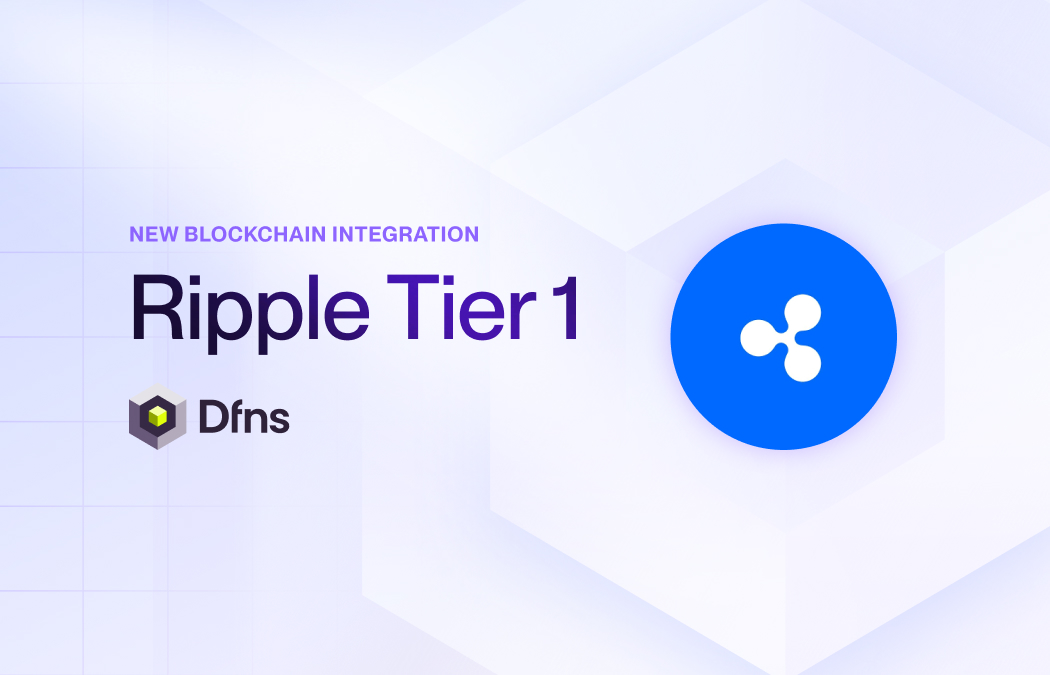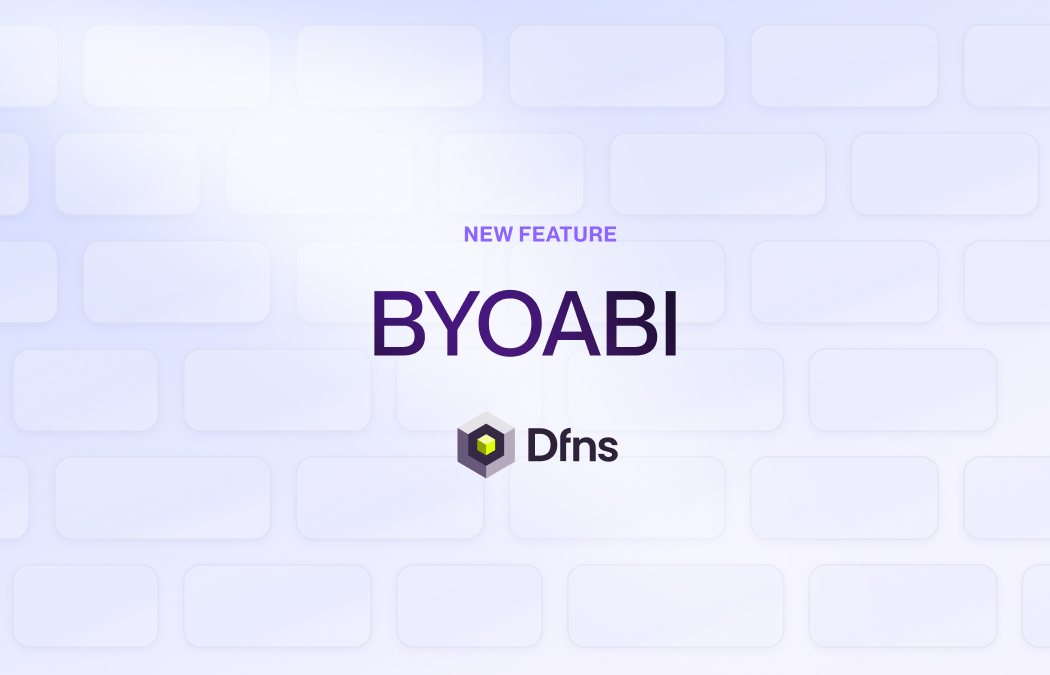.jpg)
Dfns supports CIP-56 for Canton Coin, unlocking tokenized assets, stablecoins, and treasury workflows for institutions on the Canton network.
We’re excited to announce that Dfns now supports Canton’s official token standard, CIP-56, on our Wallet-as-a-Service platform. This includes full data indexing and transfer capabilities. This milestone upgrades our Tier-1 integration to support the CIP-56 standard for Canton Coin (other CIP-56 tokens can be supported on demand, as long as the token issuer provides a dedicated RPC node). Fintechs and institutions can now securely custody, transfer, and report Canton Coins under CIP-56 on Canton’s privacy-preserving settlement network, with the same reliability that already powers millions of wallets across leading blockchains.
Completion of the Canton wallet roadmap
With CIP-56 support, Dfns has now completed its Canton integration. We started with a Tier 2 integration that enabled Canton Coin transfers. Then we upgraded to Tier 1, adding real-time indexing, webhook alerts, and automations. We also introduced Bring Your Own Validator (BYOV), allowing apps and institutions to connect their own Canton node instead of using the shared one we provide. With the latest release, BYOV now works with Canton Coin under CIP-56, and transfer offers are fully supported.
CIP-56, or Canton Improvement Proposal 56, is Canton’s version of Ethereum’s ERC-20 standard. It sets the common rules for how tokens are created, transferred, and managed on the network using DAML, Canton’s privacy-focused smart contract language. By following the same rules for balances, transfers, and approvals, CIP-56 ensures that wallets, custodians, settlement systems, and applications can work with tokens without needing custom integrations. For institutions, this means Canton Coin, and eventually other CIP-56 tokens on request, can be issued and handled on a foundation that is interoperable, scalable, and built for compliance.
The core of CIP-56 is the transfer function, which standardizes how tokens move securely between parties and supports key workflows such as bilateral transfers and atomic Delivery-versus-Payment (DvP).
What this means for Dfns wallet users
Dfns is the first wallet infrastructure provider to support CIP-56 Canton Coin with full indexing and transfers, bridging onchain innovation with institutional requirements.
What CIP-56 support brings inside Dfns:
- Token balances: wallets show live balances for Canton Coin under CIP-56 and other CIP-56 upon request.
- Transaction histories: all transfers are indexed in real time for clear audit and reporting.
- Ownership states: holdings and reconciliations are visible without parsing raw chain data.
- Free-of-Payment (FOP) transfers: token transfers that can be approved or rejected onchain.
- Approvals and allowances: delegated transfers for treasury and structured finance.
With these capabilities, institutions can now:
- Custody and transfer Canton Coin under CIP-56 with real-time indexing and auditability.
- Leverage BYOV to run their own Canton node for compliance and operational control.
- Experiment with tokenized finance workflows using Canton Coin, while preparing for future CIP-56 tokens on request.
- [Coming soon] Low-level API to build any type of transaction, enabling DvP.
With this milestone, Dfns is the first institutional wallet infrastructure to fully support Canton Coin under CIP-56. Paired with Bring Your Own Validator (BYOV), institutions gain full flexibility: they can issue, custody, and transfer assets on Canton while using their own validators, fees, and namespaces. For banks, custodians, and stablecoin issuers, this lays the foundation to build tokenized finance on a network designed for privacy, compliance, and interoperability.
Start building with Canton on Dfns today: app.dfns.io/get-started





